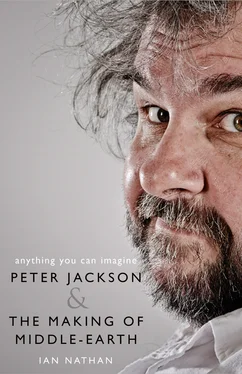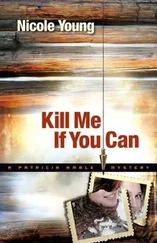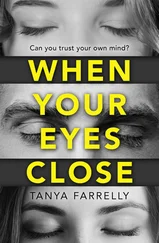Not for the first or last time, their New Zealand pragmatism marvelled at the strangeness of Hollywood. So much of it depended on the pretence of something. It was a fantasy world.
After what Kamins considered a suitable lapse of time to fool their prospective producers, the meeting was scheduled.
‘So it was Peter, Fran and me, and it was Marty Katz, who was still the producer of record at the time,’ reports Kamins, listing the attendees of their fateful meeting. ‘And then it was going to be Mark Ordesky and Bob Shaye from New Line.’ Despite Ordesky’s fervour and Kamins’ games, they still weren’t being taken too seriously. New Line’s influential Head of Production, Michael De Luca, was in London visiting the set of Lost in Space , a clunky attempt by New Line to warm up a science-fiction franchise.
Finally, it was Shaye, sleek and coiffured like an ageing prince, upon whom their tattered hopes were hanging. Co-chairman of New Line (with Michael Lynne, who was based in New York), only he remained with the power to greenlight their two-film adaptation of The Lord of the Rings .
In many, less conspicuous ways, New Line was a more influential and versatile indie than Miramax. They courted audience approval not headlines. They had found cash in kudos, bringing foreign masters to American audiences, such as Robert Bresson’s Au Hassard Balthazar and Eric Rohmer’s The Marquise of O . But it was the company’s pioneering line in low-budget horror that set it apart, and made it so successful. Shaye and Lynne were behind such seminal gore as Sam Raimi’s Evil Dead , Tobe Hooper’s Texas Chainsaw Massacre and Wes Craven’s A Nightmare on Elm Street . They were known as the ‘house that Freddy built’. In more recent times, they had lined the coffers by diversifying into action, comedy and action-comedy hits like The Mask , Dumb and Dumber , Rush Hour and the Austin Powers trilogy. Upholding their kudos with Oscar nominations for Paul Thomas Anderson’s Boogie Nights and critical appreciation of David Fincher’s serial killer hit Seven .
Charismatic and prickly, mercurial and driven, in his late fifties Shaye was a complex soul. Unlike Harvey, there was no subterfuge, no games; he told it like he saw it, wearing his heart on his sleeve. He could be moved to public tears. But he wasn’t predictable or tame. This former New York hipster and art collector was a filmmaker at heart who once shared a prize with Martin Scorsese from the Society of Cinematologists for a surreal 1964 short entitled Image. Started in 1967 with $300 of his own money, working out of his New York apartment with a piece of plinth for a desk, there was something homemade about New Line.
Says Ordesky, ‘He had a true artistic streak.’ But it could be a double-edged sword. He was quite prepared to slay dreams if he felt they had no reality.
To his chosen ‘sons’, like De Luca and Ordesky, the paternal Shaye preached a gospel of experimentation and escaping claustrophobic studio thinking. Or as he put it, with his knack for a telling aphorism, ‘Not smoking from the Hollywood crack pipe.’ In fostering talent, could they ‘spot someone one or two stops before the station’?
‘In my own small way with Peter Jackson, I did,’ claims Ordesky. Indeed, the Kiwi had barely found his seat on the train.
Picture the conference room of New Line’s headquarters at 116 N. Robertson Blvd, since vacated when they were subsumed into parent company Time Warner. Well appointed but unremarkable by Hollywood norms: boardroom table, designer chairs, state-of-the-art VCR, television, water and coffee. Did they offer tea?
‘The first thing that happens is Bob Shaye is not there,’ recounts Jackson.
Ordesky came into the room, his face ashen, to announce that, ‘Bob would like a private word with Peter first, then he’ll come look at the video.’
Putting on his game face, Jackson got up to go, a lead bar in his stomach. Ordesky could feel everyone looking at him for some kind of response. This wasn’t supposed to be happening. Had the bad news arrived before they had even started?
‘Mark had warned us Bob Shaye was a plainspoken guy,’ notes Kamins. ‘We could be six minutes into this thing and he might just say, “Stop the tape, we’re done. It’s over.”’
All they could do was wait for Jackson to return.
Jackson remembers feeling sick as he entered Shaye’s office. He knew New Line’s kingpin a little from his Freddy Krueger days, but hardly well enough to second-guess his motives.
Shaye looked at him kindly. ‘Listen, I’m happy to spend an hour with you looking at this film that you’ve got for us,’ he said, ‘but you’ve got to realize that it’s probably something that we’re not going to want to do.’
Jackson had no idea how to respond.
Walsh only had to look her partner in the eye to know what had happened. The jig was finally up. All Jackson could do was go through the motions. Like an out of body experience, he watched this version of himself calmly return to his seat and his artwork and his maquettes, only pride and forward momentum keeping him afloat.
It was Ordesky who loaded the tape and pressed play.
He knew this was only more pretending. Yet even now, as those thirty-five minutes of endeavour unspooled, Jackson couldn’t yet jettison all hope. He too was an addict of the Ring, lost in denial, and every now and then he would glance at Shaye, just to see. ‘But there was no expression, no comment, nothing …’
He remained as inscrutable as a cat.
Well aware the odds were stacked against The Lord of the Rings , Kamins had not been idle. He knew they needed a backup. While struggling to hawk their Tolkien opus around town, he had actively been looking into other projects for Jackson. Projects that could keep the Weta dream alive.
While balancing on his Lord of the Rings high wire, Jackson had taken other calls. ‘There was a lot of enthusiasm for me directing the next Bond movie,’ he grins, a lifelong Bond enthusiast contemplating 007’s alternative universe. Kamins tells the story of an early initiation watching Thunderball while his new client talked him through nuances of SPECTRE set decoration. ‘It was the Pierce Brosnan one,’ recalls Jackson, ‘ The World Is Not Enough .’ Barbara Broccoli had loved Heavenly Creatures and asked to see The Frighteners.
He sent over a tape and never heard from her again.
Joel Silver, the ebullient producer behind the Die Hard and Lethal Weapon films, pitched him Lobo , a comic-book series about an intergalactic bounty hunter. Closer to his tastes, Tom Rothman at 20th Century Fox, who he knew from their Planet of the Apes discussions, tempted him with Twenty One , the tale of a First World War hotshot who shot down twenty-one enemy planes in twenty-one days. Jackson was keen enough to show Rothman the biplane tests he had done for King Kong .
Jackson jokes that he could have been David Fincher before David Fincher. He was sent Fight Club first. He had read The Curious Case of Benjamin Button before Fincher got his hands on it. ‘If someone is going to pick up my rejects I am very glad it was him.’
He met with Kathleen Kennedy to talk about The BFG , the Roald Dahl adaptation full of big folk rather than little, since fulfilled by his friend and collaborator Steven Spielberg. He was certainly interested, but he had to be honest. Within three or four weeks he might be doing this other film. ‘We just don’t know yet.’
Kamins suspected that if The Lord of the Rings didn’t work out, especially after King Kong , Jackson and Walsh would have likely ‘taken their ball and gone home’ to New Zealand to pick up on that smaller, local career. Maybe Jackson would have revived those back-to-back Bad Taste sequels featuring Derek in space.
Читать дальше












